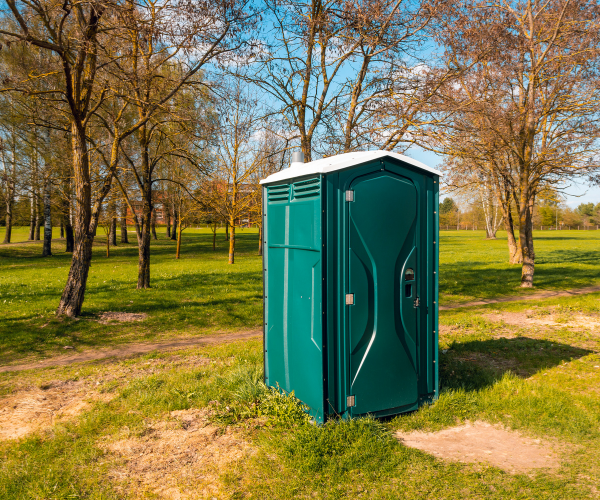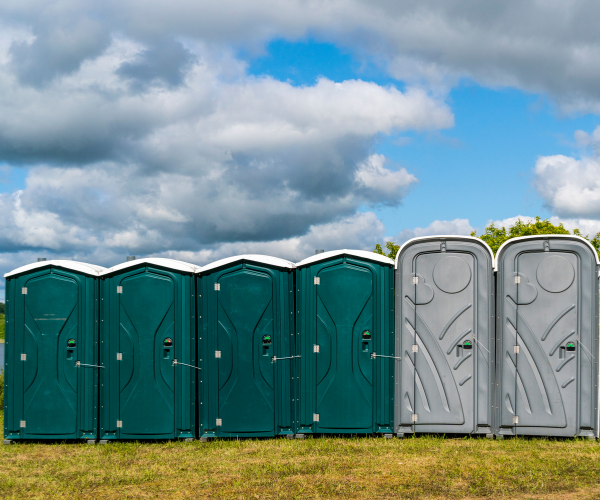The eco-friendly advantages of using Portable Toilets are numerous and play a vital role in sustainable event planning and construction site management. Portable Toilets are designed to conserve water, a critical environmental benefit. Unlike traditional toilets that can use up to 7 gallons per flush, Portable Toilets use minimal water, often just enough to cover the waste until it is pumped out. This conservation of water is particularly beneficial in areas prone to drought or where water resources are limited. Additionally, Portable Toilets help to reduce contamination risks in outdoor settings. By providing a contained environment for waste, they prevent pollution of local water supplies, soil, and surrounding ecosystems, which is a common issue when waste is not properly managed. The sanitation solutions provided by Portable Toilets are also scalable and flexible, making them ideal for events and construction projects where traditional plumbing is not feasible. They can be strategically placed to ensure optimal convenience for users while minimizing environmental impact. Vendors often ensure that the waste collected is managed according to federal and state environmental regulations, ensuring the safe treatment and disposal of waste materials. Moreover, many modern Portable Toilets are made from recyclable materials, further reducing the environmental impact. These materials can be reused or recycled at the end of their lifecycle, decreasing landfill contributions. With responsible use and management, Portable Toilets can significantly lessen the ecological footprint of any event or site, making them an ideal choice for environmentally conscious planners and contractors.

Portable Toilet Rentals in Duval County, Florida
Call today for a free quote (352) 660-8775
Portable Toilet
Fast, Easy, & 100% Free To Get Started
Decades of Expertise
Having served for over two decades, our Portable Toilet company is a trusted name in Duval County. We have deep community ties and a strong commitment to quality that ensures reliability and customer satisfaction.
Top Quality Promise
We emphasize top-quality service, providing clean, well-maintained portable toilets for your event or site. Our commitment to excellence makes us the preferred choice in Duval County.
Rapid Delivery
We take pride in delivering portable toilets promptly to your location, ensuring quick and efficient service. This reliability distinguishes us, keeping your event or project running smoothly.
Convenient Portable Toilets in Duval County
Call for a Free Quote Today
(352) 660-8775
At our Portable Toilet company in Duval County, you can trust us for your sanitation needs. With a reputation for being dependable and locally owned, we proudly serve the region, including nearby areas, with reliability you can count on. Our services are perfect for a range of events, from construction sites to parties, festivals, and weddings. When you choose us, you're opting for a company that's built on a foundation of trust, consistently delivering clean and efficient portable toilet solutions tailored for your events. Our commitment to quality and customer satisfaction ensures you have one less thing to worry about on your special day. Experience the convenience and assurance of our unmatched service across the community.


Standard Portable ToiletOur standard porta john rental units are durable and reliable for any commercial build site, housing development, public works project, or remodel job.Features include dome lighting, grated floors, and an “In-Use” locking mechanism for privacy and comfort.Regularly maintained, inspected, and cleaned by FusionSite at your location.

Wheelchair Accessible RestroomsDeveloped as an alternative to full ADA-compliant restrooms, the Liberty is a spacious, wheelchair-accessible unit that can also be promoted as a family-sized restroom.Includes a patented flat-floor system for easy wheelchair access and maneuverability.Handrails, paper holder, and rotary latch are designed for simple, intuitive end-user operation.

Portable SinkPortable hand washing stations are essential for keeping your work site sanitary and clean.Features hands-free foot pumps, liquid soap, and paper towels.Perfect for job sites without water hookups, these units can handle hundreds of washes between services.
We Proudly Serve
Standard Portable Toilets
Our Standard Portable Toilets provide affordable and essential sanitation solutions for any occasion across Duval County.
High Rise Portable Toilets
High Rise Portable Toilets deliver comfort and convenience, especially designed for elevated locations in Duval County.
Restroom Trailers
Our Restroom Trailers in Duval County offer luxury and versatility with multiple stalls for upscale events.
Roll off Dumpsters
Porta Serve provides Roll off Dumpsters equipped for efficient waste management services in Duval County.
Septic Tank Cleaning
Septic Tank Cleaning services ensure hygienic and smooth-running septic systems throughout Florida with Porta Serve.
Grease Trap Cleaning
Our Grease Trap Cleaning solutions in Duval County, Florida, keeps commercial kitchens safe and efficient.
Fencing & Barricades
Porta Serve offers reliable Fencing & Barricades solutions in Duval County, perfect for any project or event.
Residential Storage
For secure and accessible Residential Storage in Duval County, count on Porta Serve's quality service.
Duval County Services Including Portable Toilet
Securing a quote and arranging delivery for a Portable Toilet has never been easier. Our streamlined process ensures you get the information and services you need swiftly. From the moment you request a quote, our team guides you through the selection of units ideal for your event or site, ensuring a match for your specific requirements. With clear communication and no hidden fees, you'll receive a detailed proposal promptly, crafted to match your budget. As soon as you give the green light, our logistics team swings into action, arranging a delivery timeline that suits your schedule. This meticulous coordination means peace of mind, knowing your sanitation needs are met punctually. You have enough on your plate when organizing events or overseeing projects, so let us handle the essentials of logistical planning and swift delivery. No route too remote; our network ensures we reach even the most challenging locations, facilitating a seamless setup that leaves you free to focus on other priorities.

In Duval County, our Portable Toilet service stands out for its local appeal and reliability, perfectly suited for enhancing outdoor events and community gatherings. Whether you're attending a vibrant festival in Jacksonville's renowned Hemming Park or the excitement of the Jacksonville Jazz Festival, our units are designed to meet the sanitation needs of any occasion, offering convenience and peace of mind. Duval County hosts numerous community events where proximity to nature is a charm to enjoy, and our facilities ensure this experience remains comfortable for all. As a locally-owned company, we focus on maintaining the area's unique character, providing services that reflect the community's values and expectations. Trust our dedication to service excellence to make your event a seamless experience with our clean, reliable, and top-choice Portable Toilets.
Our company stands as the top choice in Duval County for Portable Toilets, and here's why: With a solid reputation and deep local roots, we fully grasp the unique needs of our community. Our dedication to exceptional service and customer satisfaction is unmatched, resulting in clean, efficient, and dependable sanitation solutions. For both intimate gatherings and large-scale events, we provide tailored services that exceed expectations, ensuring convenience and quality. Choose us to experience the difference of working with a company that truly cares about your needs in Duval County.
Our Portable Toilet services offer swift and dependable delivery, standing out as the preferred choice for events and worksites. Recognizing the critical nature of timeliness, we guarantee our units arrive on-site exactly when required, supported by a team dedicated to punctuality and professionalism. Our operations are refined to accommodate any scale and urgency, ensuring you never have to wait unnecessarily. This reliability, combined with our meticulous attention to cleanliness and welcoming units, establishes us as leaders in service excellence in Duval County.
Discover Our Portable Toilets in Duval County
Renting a Portable Toilet in Duval County is a straightforward process designed to cater to your needs with ease. Begin by visiting our website, where you'll find convenient 'Get A Quote' buttons located throughout the pages and forms at the top and bottom specifically set up for your inquiries. These forms require you to fill in essential details such as your first name, last name, phone number, and email to ensure that we can provide you with a personalized service. Once you've submitted your request, our dedicated team immediately begins working on providing a tailored solution to meet the specific requirements of your event or worksite. Whether you need a single unit or a fleet of Portable Toilets, we provide detailed and transparent pricing, taking into account all logistical factors for your chosen location within Duval County. Upon confirmation, our logistics experts coordinate the delivery, ensuring that your Portable Toilets arrive on time and are set up to your satisfaction. This seamless process means you can focus on other important aspects of your planning while we take care of the sanitation solutions. Our commitment to reliability and top-tier customer service ensures your rental experience is hassle-free and satisfactory from start to finish.
The typical delivery timeframe for Portable Toilet orders is designed to be quick and efficient, accommodating the specific schedules and needs of our clients. Once an order is confirmed, our logistics team promptly initiates the preparation and transportation of units to the designated site. Standard delivery can typically occur within 24 to 48 hours, depending on your location within Duval County and the complexity of the order. For larger projects or events requesting multiple units, we advise placing the order as early as possible to ensure optimal availability and coordination. Our system is flexible enough to handle last-minute requests whenever feasible, as we understand the unpredictable nature of event planning and construction needs. We pride ourselves on our ability to provide timely, reliable service, which is why we suggest communicating any specific delivery requirements when placing your order. This allows us to plan routes, schedule resources adequately, and ensure punctual delivery. Additionally, you can depend on our experienced team to set up the Portable Toilets efficiently upon arrival, making sure they are well-positioned and ready for use when you need them. This customer-focused approach guarantees that your Portable Toilet needs are met with the highest level of service and satisfaction.
Yes, we are indeed able to service all types of events and construction services. Our extensive range of resources ensures that we can meet the demands of festivals, sporting events, weddings, corporate events, family reunions, and any other type of special event with ease. We pride ourselves on offering a wide selection of equipment, which includes luxury restroom trailers for those seeking an elevated experience, as well as standard porta potties that are practical and cost-effective. Additionally, our roll-off dumpsters are available for efficient waste management on larger sites, while our fencing and barricades provide necessary security and boundary marking at any location. Our service offerings are further enriched with ADA units, ensuring accessibility and compliance, as well as portable sinks and hand sanitizer stations that promote sanitation and hygiene, which are crucial for any public gathering. As experts in the event and construction service sectors, we have the infrastructure, skills, and experience to guarantee a smooth and efficient setup, ensuring your event or project runs seamlessly from start to finish. Our company takes pride in delivering reliable, high-quality service that exceeds expectations and caters to every need with professionalism and care.

